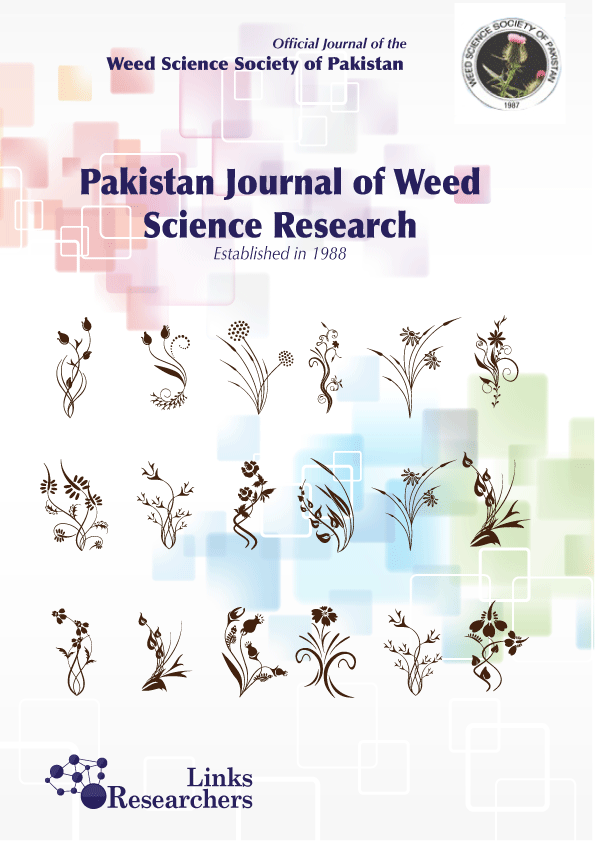Comparison of Artificial Intelligence and Synthetic Herbicides for Weed Control in Wheat Crop
Comparison of Artificial Intelligence and Synthetic Herbicides for Weed Control in Wheat Crop
Shujaullah Khan1, Zahid Hussain1*, Haroon Khan1 and Omer Suha Uslu2
ABSTRACT
The use of artificial intelligence (AI) can prove to be the most economical and environment friendly weed management strategy in wheat crop in the long run. In order to assess the impact of artificial intelligence (AI) on wheat crop in comparison with certain synthetic herbicides, a field experiment was designed in the Farm of the University of Agriculture Peshawar, in the wheat growing season of 2020-21. A Randomized Complete Block design (RCBD) was used for the layout of the experiment, keeping four replications. The experiment consisted of six different treatments including three herbicides viz. Cut Out 40 EC (bromoxynil+MCPA) @ 500 ml ha-1 as a broad leaf weeds killer, Fenoxaprop-p-ethyl 6.9% EW (fenoxaprop-p-ethyl) as a grassy weeds killer applied @ 500 ml ha-1, and Cleaner 6% OD (florasulam 2%+mesosulfuron methyl 4%) as a broad-spectrum herbicide @ 102 ml ha-1. The fourth was an AI treatment (robotic weeding), along with a hand weeding (HW) and a weedy check (WC) treatments. The treatments had a significant effect on the performance of wheat crop and also on the weed control. The HW treatment was statistically the most significant in terms of reduction in weed density m-2, weed abundance and weed frequency. Plant height of wheat crop and number of grains spike-1 were non-significantly affected by the applied treatments. However, the tallest plants and the highest number of grains spike-1 were observed in hand weeding. The highest thousand-grain-weight, biological yield and grain yield were recorded in the hand weeding treatments. However, the results of hand weeding treatments were statistically at par with the treatments of artificial intelligence (robotic weeding). The artificial intelligence got the highest CBR followed by the broad-spectrum herbicide and hand weeding. It can be concluded that the artificial intelligence could prove to be an economical as well as an environment friendly weed management strategy if applied on large scale. On the other hand, the hand weeding is generally not economical and the herbicides are not environment friendly.
To share on other social networks, click on any share button. What are these?




